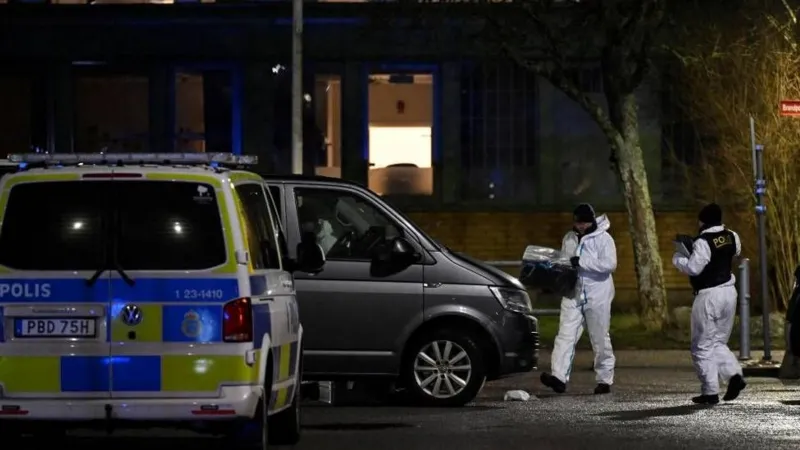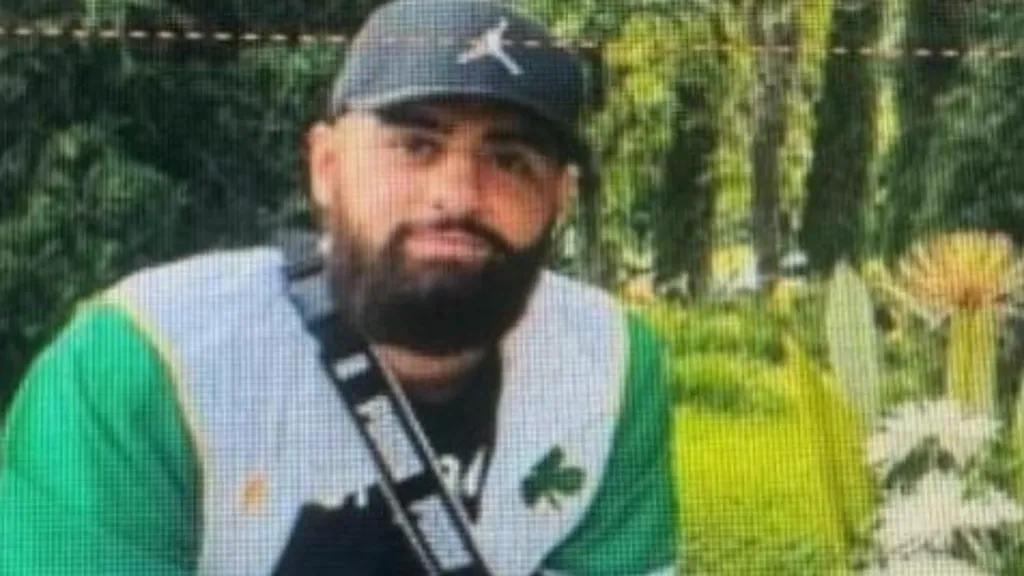Archbishop of Canterbury Resigns Over U.K. Church Abuse Scandal
Justin Welby, the leader of 85 million Anglicans worldwide, announced his resignation days after a report found he had taken insufficient action over claims of abuse.

The archbishop of Canterbury, the Most Rev. Justin Welby, resigned on Tuesday from his post as spiritual leader of 85 million Anglicans worldwide, days after a damning report concluded that he had failed to pursue a proper investigation into claims that more than 100 boys and young men were abused decades ago at Christian summer camps.
Pressure had mounted relentlessly on Mr. Welby, who also serves as the Primate of All England, after the report was published. A senior figure in the church, the bishop of Newcastle, Helen-Ann Hartley, called on him publicly to step aside, while Prime Minister Keir Starmer pointedly declined to back him.
Mr. Welby’s resignation brings to an abrupt end an eventful and occasionally stormy tenure, during which he became Britain’s best-known cleric, presiding over momentous public ceremonies like the coronation of King Charles III and becoming an impassioned voice on issues like migration.
But Mr. Welby struggled to hold together a church cleaved between progressives and traditionalists, and he was ultimately brought down by the same type of sex-abuse scandals that have toppled leaders of the Roman Catholic Church.
“It is very clear that I must take personal and institutional responsibility for the long and retraumatizing period between 2013 and 2024,” Mr. Welby said in a statement on Tuesday, confirming that he had sought permission from the king to resign.

“I hope this decision makes clear how seriously the Church of England understands the need for change and our profound commitment to creating a safer church,” Mr. Welby said. “As I step down, I do so in sorrow with all victims and survivors of abuse.”
The turmoil in the Church of England follows a cascade of scandals in the Roman Catholic Church where the failure to protect young people from predatory priests and the lack of proper investigations into accusations of wrongdoing have soiled the church’s reputation in several countries.
Under the Church of England’s rules, managing the selection of Mr. Welby’s successor falls to a committee known as the Crown Nominations Commission. It submits the name of a preferred candidate and a backup to the prime minister, who then advises the monarch on the appointment.
That process could take several months, experts on the church said, and it is cloaked in mystery. By custom, candidates for archbishop do not promote themselves for the job, whose roots date to 597. Mr. Welby, 68, confessed to astonishment that he had been chosen as the 105th archbishop. He has held the job since 2013, and was scheduled to retire in 2026.
Mr. Welby had navigated a bitter, yearslong debate in the church over how to treat same-sex marriage. The Church of England allows priests to bless same-sex couples, though it continues to debate a more formal recognition of these unions. But it was his handling of the sex-abuse scandal that proved his undoing.
Last week, the independent review concluded that the archbishop had failed to take sufficient action following reports of “abhorrent” abuse by John Smyth, a senior British lawyer, of more than 100 boys and young men since the 1970s and 1980s.
The report, compiled by Keith Makin, a former social services director, said that over four decades, Mr. Smyth became “arguably, the most prolific serial abuser to be associated with the Church of England,” operating in three countries where he inflicted physical, sexual and psychological attacks on as many as 130 people. He died in 2018 in South Africa.
The report criticized the actions of a number of people within the church. “Despite the efforts of some individuals to bring the abuse to the attention of authorities, the responses by the Church of England and others were wholly ineffective and amounted to a coverup,” it said.
In a statement in response to Mr. Makin’s report, Mr. Welby said that he had had “no idea or suspicion of this abuse before 2013,” but that he then “personally failed” to ensure that the claims of abuse were investigated properly. Mr. Welby said in 2017 that he had met Mr. Smyth but “wasn’t a close friend of his.”
Repeating an apology he made to the reviewers, Mr. Welby acknowledged that “he did not meet quickly with victims after the full horror of the abuse was revealed” by Britain’s Channel 4 in 2017.
“I promised to see them and failed until 2020,” he said. “This was wrong.”
That television report gave details of how Mr. Smyth had groomed boys and young men at Christian summer camps, universities and at Winchester College, a top British private school, before subjecting them to savage beatings.
Mr. Smyth convinced those he abused “that the way to Christ was through suffering,” the Makin report said, adding that he subjected them to “traumatic physical, sexual, psychological and spiritual attacks. The impact of that abuse is impossible to overstate and has permanently marked the lives of his victims.”
The report said it had found “clear evidence that the abuse perpetrated by John Smyth in the U.K.” was “‘covered up’, minimized and held as ‘secret’ from at least 1982 (and possibly earlier.)”
From July 2013, the Church of England knew, at the highest level, about the abuse, it said, while Mr. Welby became aware of the claims against Mr. Smyth in around August 2013, in his capacity as archbishop of Canterbury.
It added: “There was a distinct lack of curiosity shown by these senior figures and a tendency toward minimization of the matter, demonstrated by the absence of any further questioning and follow-up.”

The report said that Mr. Smyth could and should have been reported to the police in 2013, a step that probably would have led to a full investigation, the uncovering of the serial nature of the abuses in Britain, involving multiple victims, and the possibility of his being convicted.
On Monday, before Mr. Welby’s announcement, Ms. Hartley, the bishop of Newcastle, told the BBC: “I think rightly people are asking the question, ‘Can we really trust the Church of England to keep us safe?’ And I think the answer at the moment is ‘no.’”
There was always something improbable about Mr. Welby’s ascent to archbishop. Educated at Eton College, Britain’s most famous boarding school, he has said he first sensed a religious calling while a student at Cambridge University. But when he graduated, he embarked on a career as a finance executive at the French oil company Elf Aquitaine.
Mr. Welby became the treasurer of a British firm, Enterprise Oil, but by 1989, resigned to join the priesthood. After serving as a canon in Coventry Cathedral and dean of Liverpool, he was consecrated as the bishop of Durham in 2011. Shortly after, he was appointed to succeed Rowan Williams as archbishop of Canterbury.
Mr. Welby’s job put him at the center of history-making events. He presided over the state funeral of Queen Elizabeth II and crowned her eldest son, Charles. As a member of the House of Lords, he was a fierce critic of the previous Conservative government. Its proposal to put asylum seekers on one-way flights to Rwanda, he said, was beneath a country with Britain’s human-rights tradition.
Mr. Welby’s reformist instincts — he pushed for women to be allowed to become bishops in 2014 — have alienated conservative clerics. Ten Anglican archbishops from Africa and Latin America rejected Mr. Welby as their leader. But other critics said he moved too slowly. In addition to the fights over same-sex marriage, the Church of England has struggled to stanch a decline in the number of worshipers at Sunday services.
“It’s a high-wire act for the Church of England because there is profound division and disagreement,” Mr. Welby said in an interview with The New York Times in 2023. “We have to deal with this as a family dispute and not a political dispute. In other words, don’t split.”
“Everybody will probably feel at the moment, I’m going both too fast and too slowly,” he added. “That’s life.”
Source: New York Times
























































